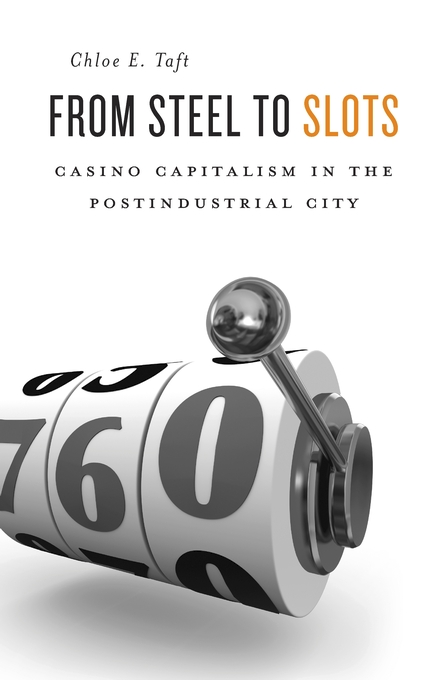
Harvard University Press
Bethlehem, Pennsylvania, was once synonymous with steel. But after the factories closed, the city bet its future on a new industry: casino gambling. On the site of the former Bethlehem Steel plant, thousands of flashing slot machines and digital bells replaced the fires in the blast furnaces and the shift change whistles of the industrial workplace. From Steel to Slots tells the story of a city struggling to make sense of the ways in which local jobs, landscapes, and identities are transformed by global capitalism.
Postindustrial redevelopment often makes a clean break with a city’s rusted past. In Bethlehem, where the new casino is industrial-themed, the city’s heritage continues to dominate the built environment and infuse everyday experiences. Through the voices of steelworkers, casino dealers, preservationists, immigrants, and executives, Chloe Taft examines the ongoing legacies of corporate presence and urban development in a small city—and their uneven effects.
Today, multinational casino corporations increasingly act as urban planners, promising jobs and new tax revenues to ailing communities. Yet in an industry premised on risk and capital liquidity, short-term gains do not necessarily mean long-term commitments to local needs. While residents often have few cards to play in the face of global capital and private development, Taft argues that the shape economic progress takes is not inevitable, nor must it always look forward. Memories of corporations’ accountability to communities persist, and citizens see alternatives for more equitable futures in the layered landscapes all around them.